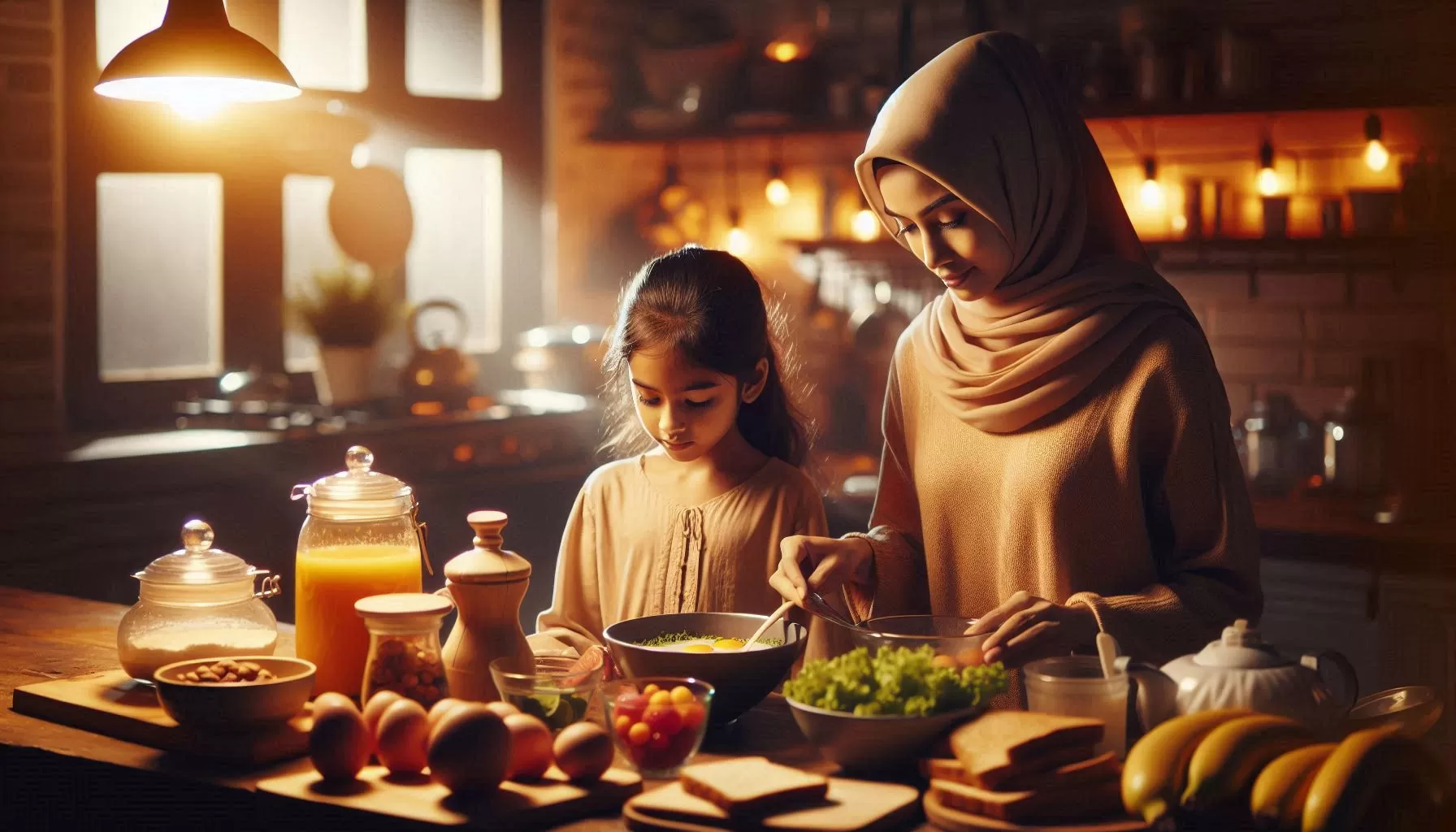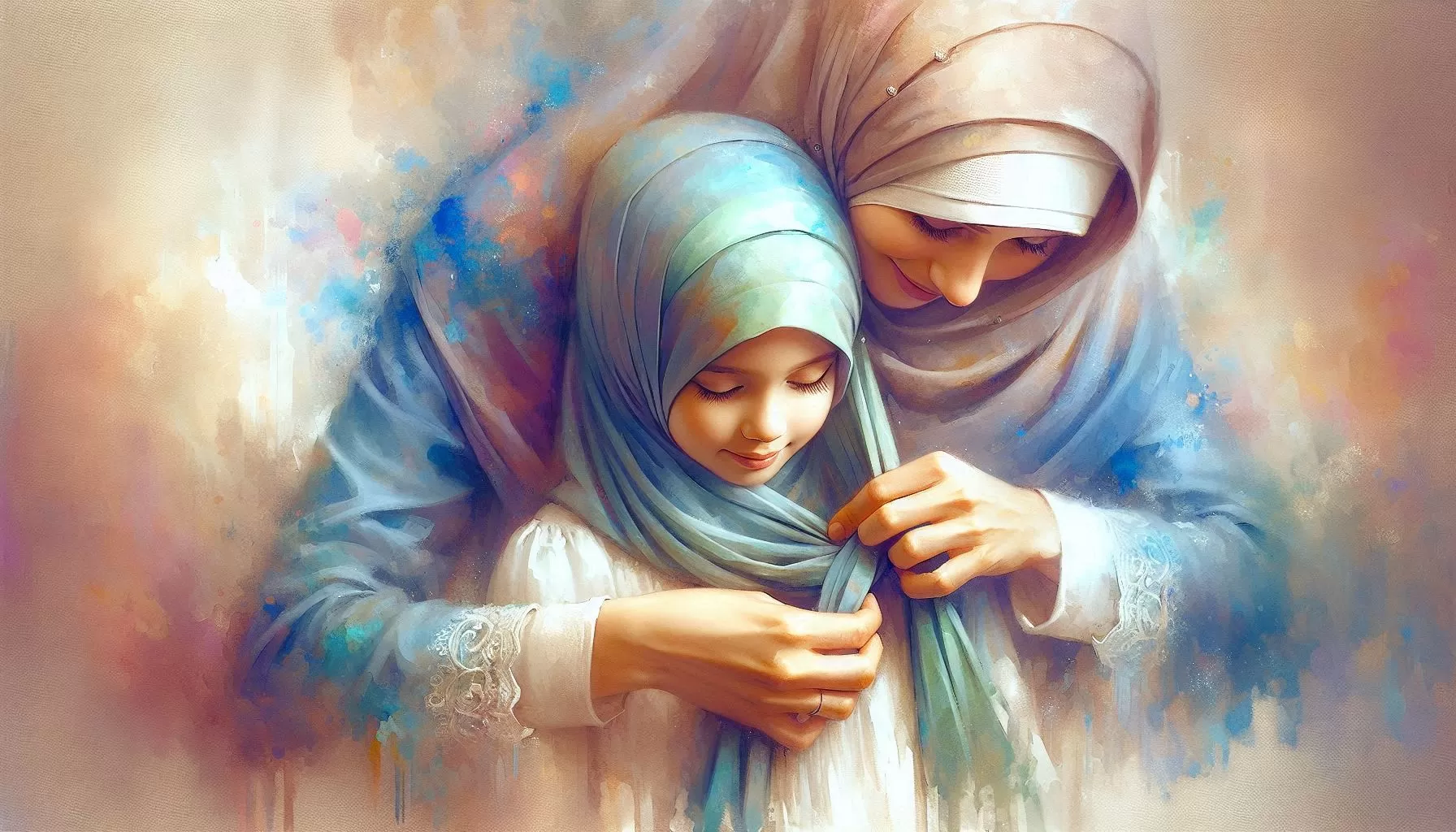The Role of Women in Ramadan: Family Responsibilities, Personal Reflection, and Worship

Women in Ramadan: Roles, Challenges, and Spiritual Reflections
Ramadan is a month of fasting, prayer, and spiritual growth, but have you ever thought about the unique journey of women during this sacred time?
Women play a vital role in Ramadan, balancing worship, family responsibilities, and personal reflection. They fast, pray, cook, care for their families, and still find time for their own spiritual connection. However, their experience is often filled with challenges—both personal and societal.
So, how do women navigate Ramadan while juggling multiple responsibilities? How can they empower themselves spiritually and emotionally during this holy month? Let’s explore the roles, struggles, and reflections of women in Ramadan, backed by Islamic teachings, real-life experiences, and inspiring lessons.
1. The Role of Women in Ramadan
Women hold a special place in Ramadan. Their contributions are immeasurable, whether as mothers, daughters, sisters, wives, or professionals.
Supporting the Family
✔ Preparing Suhoor (pre-dawn meal) and Iftar (breaking fast meal) for the family.
✔ Teaching children about fasting, patience, and gratitude.
✔ Managing household responsibilities while fasting.
The Prophet Muhammad (ﷺ) said:
"The best of you are those who are best to their families." (Tirmidhi)
This shows that the work women do at home is valuable in Islam. Their efforts are not unnoticed by Allah.
Strengthening Their Own Faith
✔ Performing Taraweeh (night prayers) and increasing Quran recitation.
✔ Making Dua (supplications) for themselves and their families.
✔ Engaging in charity and acts of kindness.
The Quran says:
"Indeed, the Muslim men and Muslim women, the believing men and believing women... for them, Allah has prepared forgiveness and a great reward." (Surah Al-Ahzab: 35)
This means both men and women are rewarded equally for their worship in Ramadan.
2. Challenges Faced by Women During Ramadan
While Ramadan is a time of blessings, women also face unique struggles.
Physical and Emotional Challenges
✔ Fasting while caring for family can be exhausting.
✔ Many women still go to work, attend school, or manage businesses while fasting.
✔ Menstruation means they cannot fast or pray, which sometimes makes them feel left out.
The Prophet (ﷺ) reassured women:
"This (menstruation) is something Allah has written for the daughters of Adam." (Bukhari)
Women should not feel guilty for missing fasts; Islam acknowledges their challenges. They can make up their fasts later.
Societal Expectations
✔ Women are often expected to do most of the cooking for Iftar and Suhoor.
✔ Some cultures prioritize men’s worship while women handle housework.
✔ There is pressure to host guests, prepare feasts, and maintain traditions, sometimes at the cost of their own worship.
Islam teaches balance. Women should not be overburdened with responsibilities that stop them from practicing their faith.
The Quran says:
"Allah does not burden a soul beyond that it can bear." (Surah Al-Baqarah: 286)
Families should support and share responsibilities so that women also have time for worship and rest.
3. How Women Can Empower Themselves in Ramadan
Women should embrace Ramadan as a time for spiritual renewal while also taking care of their well-being.
Prioritizing Worship
✔ Set realistic spiritual goals—small daily Quran readings, Dhikr, and sincere Dua.
✔ Find quiet moments for personal connection with Allah, even if life is busy.
✔ Join Taraweeh prayers when possible—even praying at home has great rewards.
The Prophet (ﷺ) said:
"When a woman prays her five daily prayers, fasts her month (Ramadan), guards her chastity, and obeys her husband, she will enter Paradise." (Ibn Hibban)
Women can achieve great rewards by focusing on their worship in any way they can.
Managing Household Responsibilities with Balance
✔ Delegate tasks—let family members help with cooking and cleaning.
✔ Prepare meal plans in advance to save time.
✔ Keep Iftar simple—Ramadan is about spirituality, not feasting.
The Prophet (ﷺ) said:
"The food of two people is enough for three, and the food of three people is enough for four." (Bukhari)
This teaches us that we should not overburden ourselves with extravagant meals. Ramadan is about simplicity.
Taking Care of Mental and Physical Health
✔ Rest when needed—Allah does not expect hardship.
✔ Stay hydrated during Suhoor and eat nutritious foods.
✔ Make time for self-care and reflection.
The Prophet (ﷺ) said:
"Your body has a right over you." (Bukhari)
This means women should take care of their health instead of overworking themselves.
4. Spiritual Reflections for Women in Ramadan
Ramadan is a gift from Allah, an opportunity for growth, forgiveness, and spiritual strength. Women can use this time to:
Reflect on their faith journey – How can they strengthen their connection with Allah?
Make heartfelt Dua – For themselves, their families, and the Ummah.
Practice gratitude – Recognizing the blessings in their lives, big and small.
The Quran says:
"So remember Me; I will remember you. And be grateful to Me and do not deny Me." (Surah Al-Baqarah: 152)
Ramadan is not just about fasting—it’s about renewing the heart, mind, and soul.
5. Conclusion: A Tribute to the Strength of Women in Ramadan
Women in Ramadan are pillars of strength, love, and faith. They support their families, uplift their communities, and nurture their own spirituality despite the challenges they face.
But Ramadan is not just about giving to others—it is also a time for women to prioritize their own faith, well-being, and personal connection with Allah.
To all the women observing Ramadan—your efforts are seen, your sacrifices are valued, and your rewards are countless.
So, how will you make this Ramadan a time of both giving and spiritual growth?
HashTags: #WomenInRamadan #Ramadan2024 #SpiritualEmpowerment #MuslimWomen #IslamicReminders #RamadanTips #FaithAndFamily #RamadanReflections #QuranForWomen #FastingInIslam #SelfCareInRamadan #IslamicTeachings #RamadanRoutine

